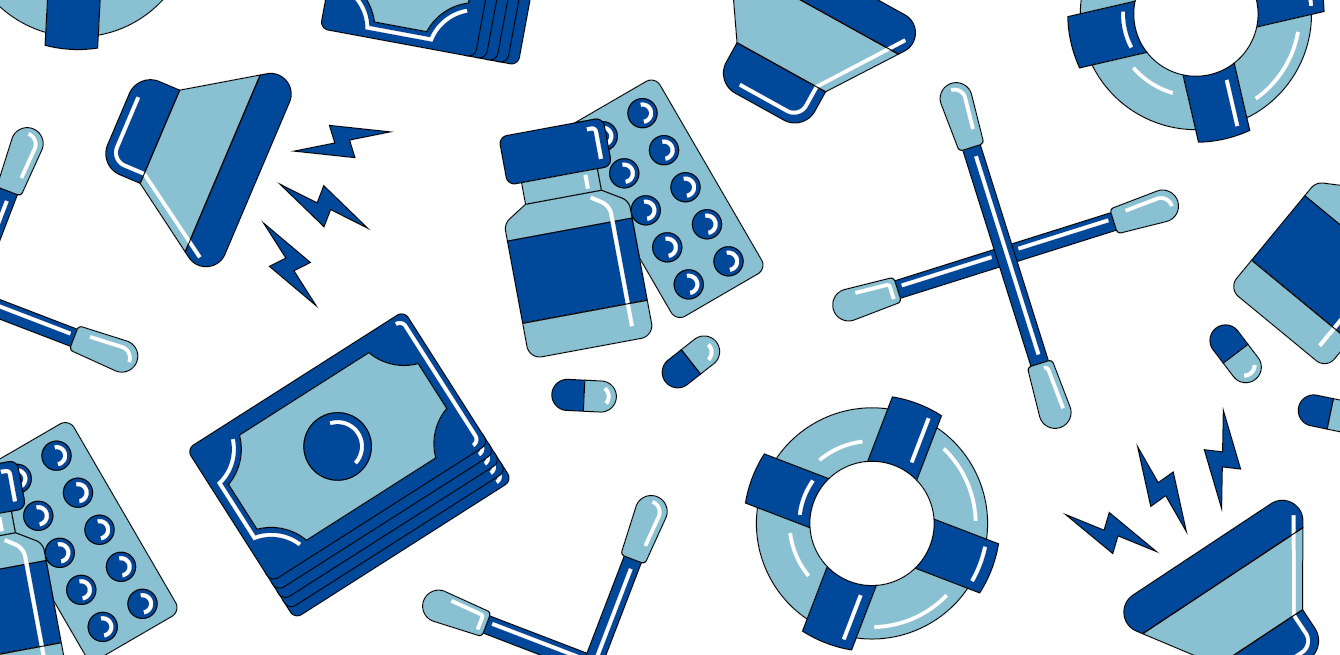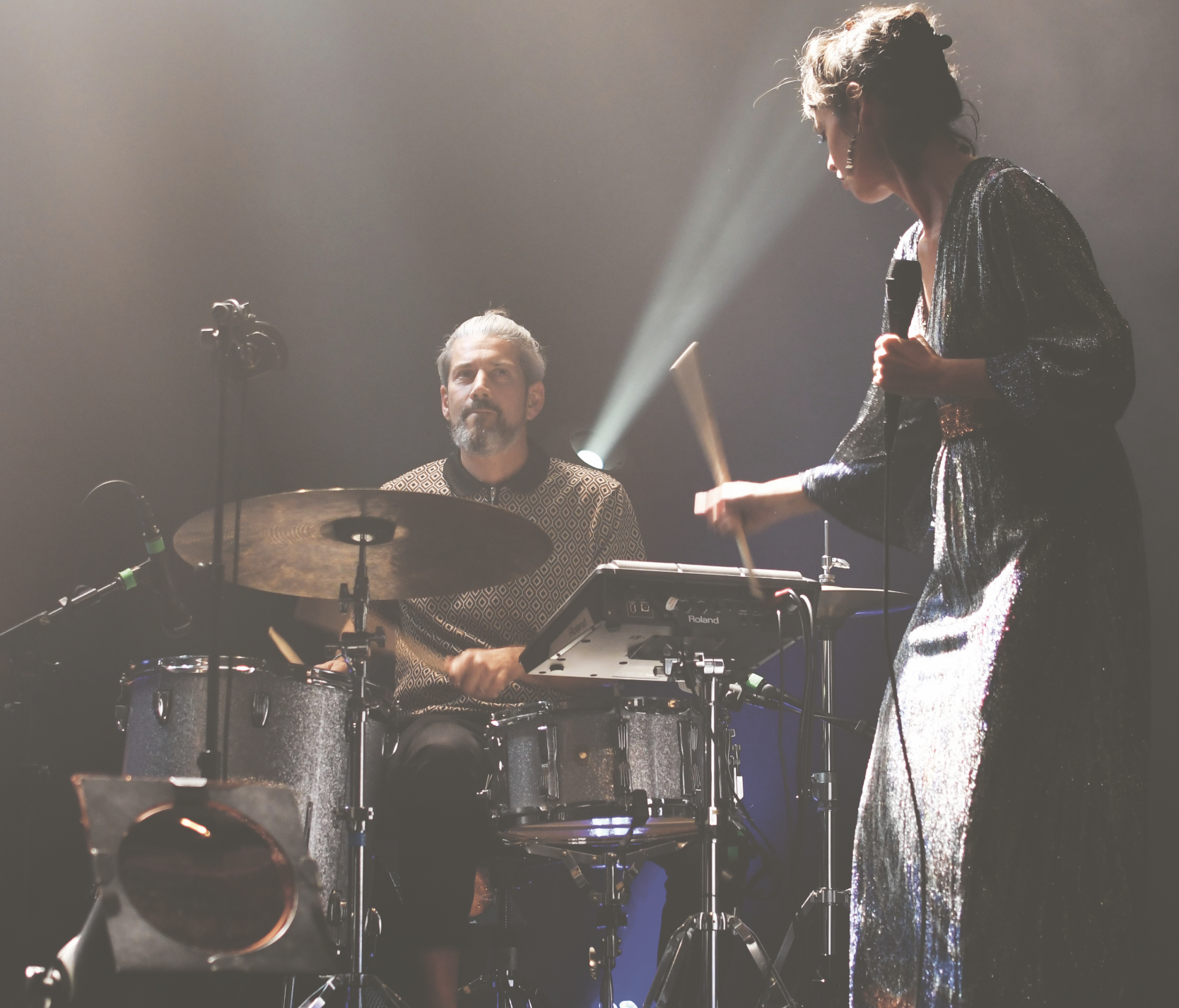
Hearing problems affect nearly 15% of the Swiss population. These conditions are often taboo, despite their consequences on the individual’s social and personal well-being. Here, we present real-life accounts and offer advice.
Seven years is the number of that Swiss men and women have to wait before seeing a doctor about hearing problems. And only 50% of people who are hard of hearing treat the problem. “Hearing problems are still taboo because the majority of people associate them with old age,” says Mercy George, a doctor specialising in otology – a field of medicine focusing on hearing conditions and disorders – at Lausanne University Hospital (CHUV). “They’re extremely common, as are vision problems. But the visually impaired don’t suffer from the same stigma.”
Pro Audito, an independent organisation in Switzerland that helps people who are deaf or hard of hearing, estimates that 1.3 million people in the country have a hearing impairment. The World Health Organization (WHO) ranks hearing loss fifth in its list of health issues that most affect quality of life, reporting that 1.5 billion people worldwide suffer from a hearing impairment.
“Hearing problems lead to difficulty in interpersonal relationships,” says Heike Zimmermann, Co-Managing Director of Pro Audito Switzerland. “The interaction challenges can cause problems, create misunderstandings, and the effort put into listening can be frustrating and exhausting. Their ability to work and travel is also reduced. Safety is also threatened, as they cannot hear alarms or traffic noise. In fact, these obstacles often lead to social isolation.”
Mercy George also warns against the psychological risks of untreated hearing loss. “Hearing loss has a very significant social impact. People with hearing loss tend to withdraw socially, which can lead to deep depression and loneliness. The situation is particularly alarming for children, who will not necessarily express their feelings of loneliness.” To detect the warning signs, the doctor advises paying attention to indications such as “the feeling that people are mumbling, that you need to turn up the television or when you struggle to understand others at a restaurant.”
The ear is made up of three parts: the outer ear, which includes the pinna and auditory canal with the eardrum, the middle ear with the ossicles, and the inner ear with the cochlea, the semicircular canals and the auditory nerve. Hearing aids are worthwhile for people suffering from hearing loss due to inner ear problems. Placed inside or outside the ear, these devices amplify sound vibrations so that they can be heard more clearly.
When damage is more severe and hearing aids no longer work, the individual might consider cochlear implants. These electronic devices are surgically inserted inside the cochlea to stimulate the auditory nerve. Surgery and medical treatment are possible options for problems affecting other parts of the ear. “An adapted hearing aid is currently the best solution,” Heike Zimmermann says. “Complementary devices are available, and lip-reading can improve comprehension by up to 30%.”
Hearing loss can have several causes: bacterial or viral infections, earwax build-up in the ear canal, repeated ear infections in childhood, smoking, certain medications and professional or recreational acoustic trauma. Most often though, hearing loss is due to old age. The WHO states that the ears begin to age as of the age of 30. By age 60, more than a third of people have some degree of hearing loss. Then as of 70, two out of three people, and the rate rises to more than 80% after age 80. “With demographic change and the baby-boomer generation, age-related hearing loss is going to become a major issue over the next few years,” the Co-Managing Director of Pro Audito says. What’s more, economically, untreated hearing impairments cost 6.3 billion Swiss francs a year in Switzerland. Almost two-thirds of that is due to the reduced quality of life of sufferers, as reported in 2020 by Pharmapro, the Swiss job platform for pharmacy jobs in Switzerland.
Tinnitus is a type of interference noise such as buzzing, crackling, hissing or whistling noises which are experienced without external sound. In Switzerland, the condition affects between 10% and 18% of the population, of all ages, and ranges in severity from discomfort to unilateral or bilateral hearing loss. Chronic hearing loss affects 4% of the adult population. “We call it ‘the crying of the cochlea’,” Mercy George says. “The cause is clear in 60% of cases, either an infection or more often an injury due to overly loud noise, for example from headphones.
In the remaining 40% of cases, the cause is idiopathic, i.e. it has no defined cause. Onset is then usually related to factors such as stress.”

Musician Alain Frey has suffered from tinnitus for 20 years. The condition affects 10% to 18% of x Swiss population.
Alain Frey is a professional musician. He performs and plays drums with his band Elvett. He began to experience tinnitus about 20 years ago. “After working for hours, I went to a concert, and the place was really noisy. I felt really worn out from the sound, and the next morning I got tinnitus that never went away.” The drummer had to stop performing on stage for certain periods. “I was gutted, but I have to preserve my health. For a long time in the music world, tinnitus was taboo. It wasn’t cool to turn down the volume and protect yourself from the noise.” But a snare drum on a drum set is particularly loud. At up to 120 decibels, the sound is as strong as a demolition hammer.
The Geneva musician hears high-pitched white noise in both ears. “From morning to night, I hear this interference noise. You have to learn to live with it, to ignore it, otherwise it’s extremely irritating and exhausting. In my experience, anxiety and fatigue tend to make the situation worse.”
Tinnitus is harmless but can cause serious discomfort, sometimes leading to insomnia headaches, and even depression. Most cases have no cure because the damage to the inner ear is irreversible. Once injured, the ear cannot heal. “I feel helpless. The damage is done,” the musician says. Tinnitus also leads to hyperacusis, a condition in which normal sounds are perceived as unusually loud. “Everyday noises can become torture. You never feel at rest, everything is an attack,” the 51-year-old musician laments.
Pro Audito Switzerland advises everyone to take care of their hearing and not to hesitate to have their hearing tested. The organisation advocates to have subtitles included on all videos and television programmes, as well as on content from public events and speeches.
George Mercy campaigns to improve prevention: “Fragile hearing is completely ignored, yet people can preserve it with simple actions, for example by keeping headphone volume at a maximum of 60% and wearing ear plugs at concerts or noisy events.” The musician from the group Elvett also calls for more prevention and recommends being careful with the volume of earbuds, which send the sound directly into the eardrum. A healthy lifestyle, together with keeping hypertension and diabetes in check, also helps to maintain good hearing quality. /

Belgian singer Angèle suffers from chronic tinnitus, like “grieving for silence”, which she describes in her song “J’entends” (I can hear).

The secretion of cerumen in the ear canal is normal. Cotton buds should be avoided as they risk creating build-up or irritating the ear.

Non-profit organisations such as Pro Audito, Pro Senectute and the Forom écoute foundation support people suffering from hearing loss. They offer explanations and practical advice.

Patients with hearing problems diagnosed by a doctor are entitled to a financial contribution from Old Age and Survivors’ Insurance (OASI) towards a hearing aid. For further information, please contact the DI office in your canton.

Some medicines, such as anti-tuberculosis drugs, anti-cancer drugs, certain antibiotics and even aspirin can impair hearing function. It is therefore essential for you to talk to your doctor to avoid any harmful interactions.